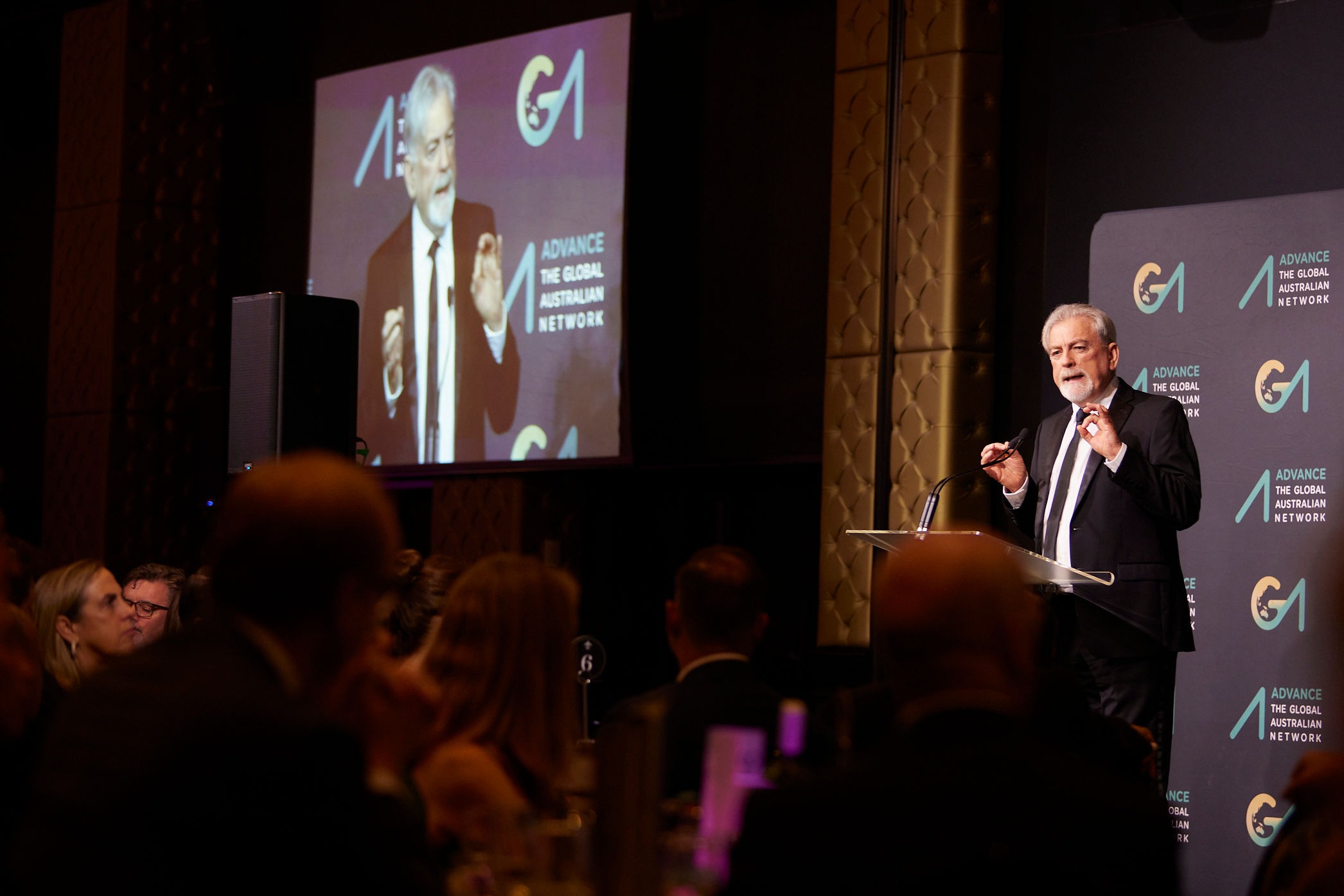

Glenn Denning – Global Australian of the Year – calls on Australia to step up on regional food security
March 18, 2024

A food-secure Asia-Pacific region is not only important to our neighbours but it’s in our best interests, it’s the right thing to do and it’s also the smart thing to do.
This was the conclusion of Australian Prof Glenn Denning from Columbia University delivering his keynote address at the Advance Global Australian Annual Gala in Sydney on 14 March. Glenn was honoured as Advance’s 2023 Global Australian of the Year awardee. The Global Australian Awards celebrate the extraordinary achievements of Australians living and working overseas, international alumni of Aussie universities and recent migrants to Australia who are innovating in their field. Glenn’s award was for his career dedicated to ending hunger and malnutrition.
In his address (available here) on Australia’s role in solving food security challenges, Glenn shared key conclusions from his recent book, “Universal Food Security: How to End Hunger While Protecting the Planet.” Drawing on the peer-reviewed literature, expert opinion, and his own 40 years as a field practitioner, Glenn arrived at a 5-part strategy for food system transformation that includes:
- Improving productivity but doing so sustainably
- Connecting farmers to markets
- Reducing post-harvest losses
- Shifting consumption behavior toward healthy diets
- Better safety net and social protection systems
Glenn went on to explain why food security is important for Australia.
“This all boils down to two indisputable and well documented facts. First, on the demand side, agriculture and food security are major strategic, geo-political concerns and a high priority for our regional neighbors and the broader global community. Second, on the supply side, Australia has an enviable track record of achievement in agricultural research and development, both domestically and internationally, and is well poised to be a preferred partner in this domain,” he explained.
He also noted that “Australia is actually very good at this” and went on to draw on his personal experience of being part of several initiatives that were supported by the Australian government over the past decades and his work in Indonesia, the Philippines, Cambodia, Timor-Leste and other examples across the region where Australian expertise is making a difference.
“I should highlight the great work of the Australian Centre for International Agricultural Research (ACIAR)—for 40 years ACIAR has been building partnerships between R & D institutions in Australia and abroad through a unique proposition that investing in R & D can bring benefits to both Australia and its partners,” he said.
“All this said, I believe we could do so much more. Just 8% of Australia’s aid budget goes to agriculture and related sectors. That seems too low to me. We are missing opportunities to meet the interests and expectations of our neighbors. And we are not fulfilling the potential illustrated by our track record in this area. Australia should step up and do more.”
Glenn went on to suggest how to get to a food-secure Asia-Pacific Region:
- Support our own farmers—they are among the most productive, competitive, and sustainable in the world. Across a range of commodities, Australian farmers and the food industry more broadly can contribute to food security in Australia and abroad.
- Support greater cooperation between Australian and partner institutions on R & D throughout the Asia Pacific region. Again, we should build on the excellent foundation of ACIAR and the many universities, CSIRO, state departments and others working in this space.
- We should consider establishing and developing a corps of young practitioners-leaders who can go out into the region and work within the ministries of organisations in partner countries. A Food Security Corps would help us build a much-needed new generation of practitioner-leaders with skills and sensitivity to tackle food security, both in Australia (including within our indigenous communities) and throughout the region.
- Last, let’s increase the profile and budget of food security within DFAT and the Australian aid budget. I mentioned that agriculture is currently around 8%. A figure closer to 20% would seem more than reasonable.
“I am an optimist—but a pragmatic optimist who believes that the future is what we choose to create. That may be the legacy of growing up in Australia. It’s true that in many respects we are a lucky country. But hard work and a positive can-do attitude make us even luckier,” he ended.




